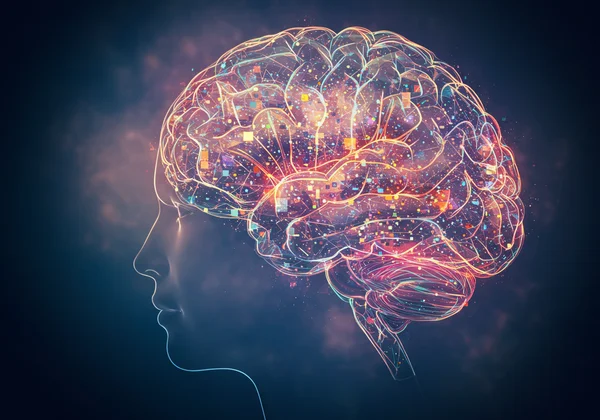我是神经多样性者吗?参加我们的免费神经多样性测试
August 17, 2025 | By Morgan Hayes
你是否曾觉得自己的大脑的连接方式有些不同?也许你曾刷过 TikTok 或 Reddit,看到关于多动症(ADHD)或自闭症的帖子,然后一个悄悄的念头浮现:“这听起来像我。” 你有这种感觉并非孤单一人,你的好奇心是走向自我理解的有效而有力的第一步。本文旨在帮助你探索神经多样性意味着什么,识别常见特征,并向你展示如何通过一项 神经多样性测试 开始理清你的独特经历。那么,神经多样性有哪些迹象呢?
这段探索之旅可能会令人不知所措,但它并非必须如此。它关乎为你的经历找到恰当的语言,并认识到你的视角是宝贵的。如果你准备好探索你的神经学特征,现在就可以通过一个简单、富有洞察力的测验 开始你的探索,它旨在赋予你力量。
神经多样性有哪些迹象?
神经多样性并非单一病症,而是一个广义术语,旨在颂扬人类大脑功能的自然多样性。它包括众所周知的神经类型,如自闭症谱系障碍 (ASD) 和注意力缺陷/多动障碍 (ADHD),以及阅读障碍、发育性协调障碍等。神经多样性范式并非将这些差异视为缺陷,而是将其视为独特的变异。识别这些特征是理解你的个人“操作系统”的第一步。

许多人通过进行一项 我是神经多样性者吗?测试 来开始这段旅程,看看他们的经历是否与常见模式相符。这些模式通常涉及日常生活的几个关键领域。
理解社交和沟通差异
对于许多神经多样性个体来说,社交互动可能感觉像是在努力遵循一份别人都收到而你没有收到的剧本。这并非“反社会”,而是以不同的方式处理社交信息。你可能会发现自己更喜欢深入、有意义的对话而非肤浅的闲聊,或者你以非常直接、字面的方式沟通,有时无意中显得生硬。
另一种常见经历是“伪装”,即有意识或无意识地隐藏自己的自然特征以适应神经典型者的期望。这会让人精神上筋疲力尽。你可能还会发现难以解读非语言线索,如语调或肢体语言,或者你可能避免眼神交流,因为它感觉过于强烈。这些并非性格缺陷;它们只是不同的互动模式。
探索执行功能和专注力
执行功能是我们用来管理时间、规划、组织和完成任务的心理技能。对于神经多样性大脑来说,这些功能可以以独特的方式运作。你可能在看似无聊的任务上拖延,但却能对一个吸引你的“特殊兴趣”高度专注数小时。这种强烈的专注力是一种强大的优势,有助于深入学习知识和发展技能。
反之,你可能会经历“时间盲”,即你难以感知时间的流逝,导致长期迟到。组织能力方面的挑战,从凌乱的办公桌到忘记约会,也都很常见。这些并非懒惰的迹象,而是通常与神经多样性大脑如何优先处理和启动任务有关。一项在线 神经多样性测试 可以帮助你看看这些模式是否能引起你的共鸣。
理解感官处理和敏感性
你衬衫上的标签让你痒得难以忍受吗?超市里的荧光灯让你感到令人难以承受吗?感官敏感性是神经多样性的一个核心特征。你可能高度敏感,感官输入(如声音、光线、质地或气味)感觉令人痛苦地强烈。这可能导致感官超载,引起压力并需要退缩。
另一方面,你可能低度敏感,这意味着你寻求强烈的感官输入。这可能表现为对辛辣食物、嘈杂音乐的热爱,或不停地小动作以获得大脑渴望的身体反馈。了解你的感官特征是创造能让你茁壮成长而非仅仅生存的环境的关键。
![]()
神经多样性特征测验 vs. 临床诊断
当你探索这些特征时,寻求清晰是很自然的。一项 神经多样性特征测验 是一个很好的工具,但理解其作用很重要。它是一块垫脚石,而非最终目的地。这种区别对于建立信任并确保你遵循一条既能提供验证又负责任的道路至关重要。
许多人发现,初步筛查提供了与他人(包括专业人士)讨论其经历所需的信心和词汇。它将“与众不同”的模糊感受转化为一套更具体的、可观察的特征。
在线筛查能告诉你什么
在线筛查,如我们网站提供的 免费神经多样性测试,旨在成为一个低门槛、易于获取的第一步。它不是医疗工具,而是自我反思的指南。通过回答一系列情境问题,你可以识别你的行为、思想和感受中与已知神经多样性特征相符的模式。
结果可以提供深刻的认同感,向你表明你的经历与许多其他人相同。这会极大地赋能,减少孤立感和自责。它提供了一个理解你的挑战以及同样重要的独特优势的框架。迈出这 宝贵的第一步 可以照亮前进的道路。
为什么这不能替代专业建议
必须明确指出:我们的神经多样性筛查不是临床诊断。正式诊断是由合格的医疗专业人员(如心理学家或精神科医生)进行的全面过程。它通常涉及详细访谈、病史回顾和标准化评估。
如果你正在寻求工作场所或学术上的合理的便利,或者你的特征在日常生活中造成了显著困扰,寻求 专业建议 是推荐的下一步。在线工具可以为你的对话提供支持,但不能取代它。我们致力于提供一个值得信赖的资源,这包括对我们工具的范围保持透明。

质疑自己是否是神经多样性者,并非仅仅为了寻求一个标签。而是为了一个基本的人类需求:被看见和被理解,从自我开始。识别你的社交风格、专注力和感官体验中的模式,是一种勇敢的自我发现行为。它将叙事从“我怎么了?”转变为“我的大脑是如何连接的?”
这段旅程赋予你力量,让你拥抱自己的优势——如深度专注、创造力和独特的解决问题能力——同时制定策略来应对你的挑战。你不是“坏掉的”或“古怪的”;你可能只是神经多样性者,这是一种有效且有价值的存在方式。
准备好在一个安全、无评判的空间里探索你独特的个人特质了吗?你正在寻找的答案可能只需点击几下即可获得。今天就 参加免费测试,开始你的自我接纳和赋能之旅吧。
关于神经多样性的常见问题解答
我是神经多样性者,还是仅仅焦虑/懒惰?
这是一个非常常见的问题。虽然焦虑可以与神经多样性并存,但两者之间存在关键区别。执行功能障碍,常被误认为是“懒惰”,是一种长期存在的任务启动和贯彻执行困难,即使是你希望做的事情也是如此。它是“不能”,而不是“不愿”。同样,社交焦虑可能源于对评判的恐惧,而自闭症的社交差异则源于处理社交线索的不同方式。筛查可以帮助你发现这些潜在模式。
没有多动症或自闭症,你也能是神经多样性者吗?
绝对可以。神经多样性是一个广阔而包容的概念。它除了自闭症和多动症之外,还包括广泛的神经类型,例如阅读障碍(阅读能力差异)、计算障碍(数字处理能力差异)、发育性协调障碍(协调能力差异)以及抽动秽语综合征等。我们的平台使用广义的术语“神经多样性者”来欢迎所有觉得自己的大脑运作方式与神经典型标准不同的人。
神经多样性大脑的优势是什么?
神经多样性大脑具有非凡的优势。许多自闭症患者具有强烈的正义感、卓越的模式识别能力,以及在感兴趣领域发展深入专业知识的能力。多动症个体通常极富创造力、自发性,并且能够在压力下跳出固有思维模式。拥抱神经多样性意味着认识到这些优势,而不仅仅关注挑战。 神经多样性测试 旨在帮助你看到完整的图景。